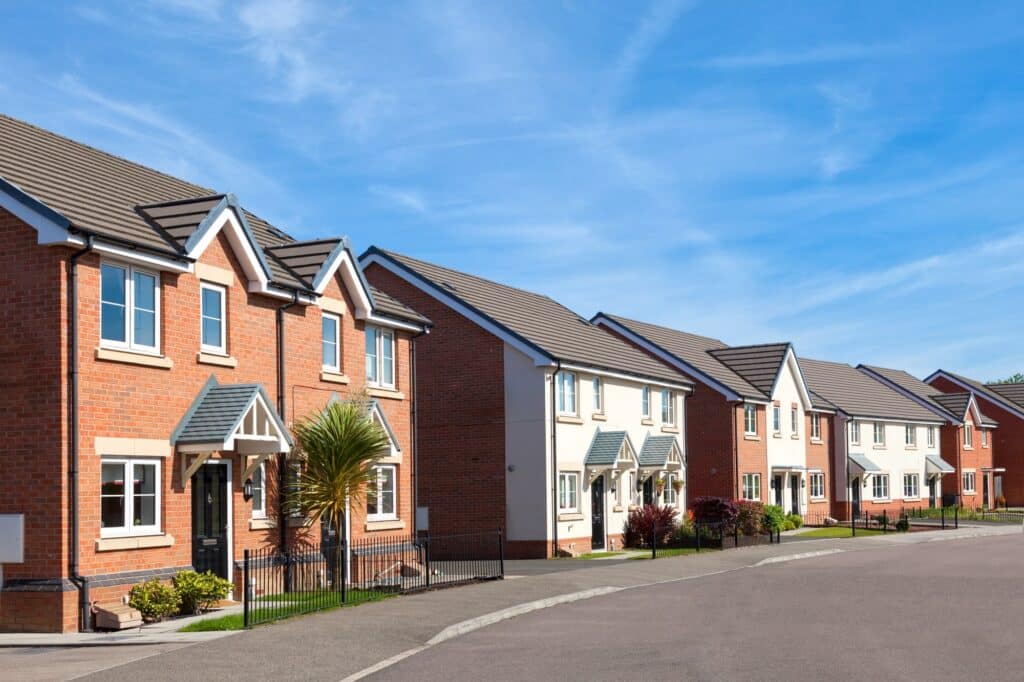Getting on the property ladder is harder than ever before. Higher rents, changing family dynamics, and the rising cost of living make it difficult for many to save up for a deposit and the other expenses associated with buying a property. If you want to get on the property ladder but worry you won’t be able to afford to buy, there might be another option you haven’t considered: shared ownership.
Shared ownership is a government-backed scheme that opens the door to homeownership at a fraction of the usual deposit or mortgage required to get on the property ladder. To help you determine if this route is right for you, the Doctors Mortgages Online team has put together this helpful guide so you can make an informed decision.
What Is Shared Ownership?
It’s a government initiative to help more people get on the property ladder. It is where you own a percentage of a property – usually between 10% and 75% initially – and a landlord owns the rest. The landlord is usually a housing association, private provider, or local authority. You’ll pay a mortgage each month on the part you own and rent to the landlord on the share you don’t. Shared ownership is sometimes referred to as ‘part rent, part buy.’
How Do Shared Ownership Mortgages Work?
With shared ownership, you take out a mortgage based on the share of the property value that you will own – not the full price. This means that your deposit and mortgage will be much smaller than if you were buying a home normally. Usually, lenders require a minimum 5% deposit (you can choose to put down more), but this can vary. You’ll then enter into a tenancy agreement with the landlord for the remaining share of the property.
An example:
If you were to buy a 25% share in a £200,000 property, your ‘purchase price’ would be £50,000. If you put down a 10% deposit of £5,000, you’d then need to take out a £45,000 mortgage for the rest of your share.
In addition to this, you’ll need to pay rent to the landlord for their share. It varies, but this is usually worked out as a percentage of the share you don’t own – often around 3%*. So, 3% of £150,000 works out as £4,500 in rent each year or £375 per month.
You’ll also need to factor in any ground rent or monthly service charges on top of this, alongside running costs.
Who Is Eligible For Shared Ownership?
There is a common misconception that shared ownership is just for first-time buyers. In fact, shared ownership is open to anyone, including first-time buyers and people who have owned properties before but who can no longer afford a traditional mortgage. You can be single or be a couple. The only stipulation is that your household income must be £80,000 or below, or £90,000 or below if in London. You will still need to pass the same affordability and credit checks as a mainstream mortgage.
Can You Buy Any Property?
No, you can’t buy any property with a shared ownership mortgage. Your choice will rest on what’s available from housing associations and what’s being built by property developers.
Can You Increase The Percentage of Property You Own In Time?
With shared ownership, you can gradually increase the percentage of the property you own over time. This is called staircasing, and in theory, you’ll eventually be able to own 100% of your property. You can bump up your share after you’ve been in the property for a year. You can choose to increase your share by increments of 1%, 5%, or even more. People usually do this after building their savings up, moving to a higher-paying job, or extending their mortgage term.
However, how much this costs will depend on the value of the property when you want to increase your share – not the original value when you bought the home, so it could cost you more than it did before. You’ll also need to go through the admin and conveyancing process again each time you increase your shares.
Can I Make Changes To A Shared Ownership Home?
You can normally make changes to your property just like any homeowner. However, your tenancy agreement may have some restrictions, so always check this carefully. In most cases, you should be able to decorate as you want, but making structural changes might need approval from the housing association first. You’ll also need to double-check that you can keep pets there if you have them.
What Happens If I Want To Sell?
If you’ve worked up to 100% ownership, you should be able to sell the property like normal through an estate agent. Sometimes, you may have to give the housing association first refusal.
If you own a share of the property, selling it might be different. You may need to tell your housing association to see if they can sell it to another shared ownership buyer. If you don’t need to do this or they can’t find a buyer, you can sell your share through an estate agent.
Main Benefits of Going Down the Shared Ownership Route
- You can get on the property ladder without having a huge deposit.
- You can work towards owning 100% of your home through staircasing.
- It can offer more long-term stability than renting.
Key Points to Be Aware of With Shared Ownership
- You are still a tenant and will have to keep up with rent payments. If you don’t do this, you could risk being evicted.
- You will need to factor in additional costs, such as service charges or ground rent if you are in a communal building.
- You can’t sublet the property unless you own the property outright.
We’re Here to Help You Secure a Shared Ownership Mortgage
If you want to get on the property ladder quickly, shared ownership is a valuable option as it offers a more affordable way to buy a home. However, to decide if it’s right for you, you’ll need to fully understand the terms and conditions of shared ownership. Want to speak to the experts? Our experienced team can help you understand your options for shared ownership mortgages so you know the implications of taking on this type of property ownership. Get in touch today!




